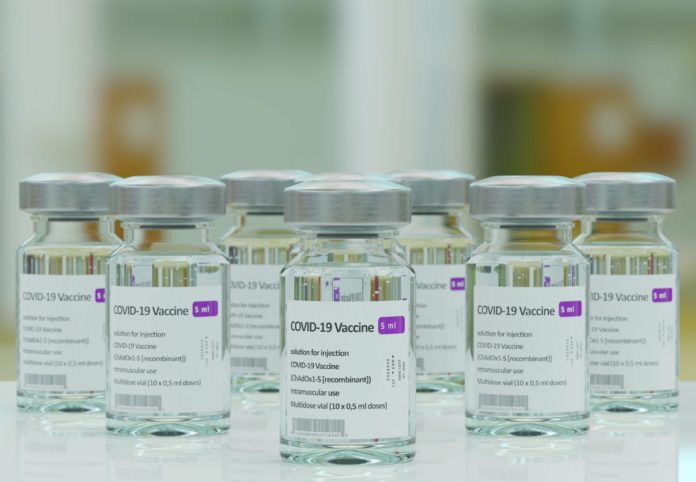Ellen ‘t Hoen, Medicines Law & Policy, at the World Trade Organization-World Health Organization High-Level Dialogue on Expanding COVID-19 Vaccine Manufacturing to Promote Equitable Access
On 21 July 2021, the World Trade Organization and the World Health Organization held a high-level dialogue to identify obstacles and propose solutions to inequitable access to vaccines. The Directors General of the World Trade Organization, the World Health Organization, and the World Intellectual Property Organization opened the event. Medicines Law & Policy’s Ellen ‘t Hoen was an invited contributor. Her remarks are below.
Dr Ngozi, Dr Tedros, thank you for the opportunity to take part in this important event and for your leadership.
The Covid-19 outbreak led to unprecedented scientific collaboration and vast amounts of public financing – at least 93 billion Euros – to develop products to respond to the outbreak. The first Covid vaccines went to market 9 months after the pandemic was declared. Never before have vaccines come to market at such a rapid speed.
But the pandemic has also laid bare the lack of an effective mechanism for the sharing of intellectual property (IP), knowledge, know-how, data and technology required to produce at scale the diagnostics, therapeutics and vaccines needed to fight the pandemic.
We have seen hoarding of vaccines by wealthy nations and hoarding of knowledge required to produce these vaccines by their pharmaceutical companies.
As a result, there is huge inequity in access to Covid vaccines and the emergence of new variants of the virus which pose a risk to all of us on the planet. In the words of Dr Tedros, “the world is on the brink of a catastrophic moral failure”.
The World Health Organization (WHO) aimed to avoid this situation when it established in May 2020 the Covid-19 Technology Access Pool (C-TAP): a mechanism to facilitate the sharing of intellectual property (IP), know-how, data and technology that is needed to produce enough vaccine doses – 11 billion – to inoculate the world. It did so well before the first vaccines came to market, in order to be prepared for what we knew would be an immediate, and urgent, demand for access.
So far, pharmaceutical companies have refused to collaborate with C-TAP and the WHO technology transfer hubs, (as recommended also by the Independent Panel on Pandemic Preparedness and Response (IPPPR)) but have not offered any convincing reasons as to why this is so. They should tell us what it will take for them to come on board or better even, get on board. Precious time to expand production has been lost. One company, AstraZeneca has entered into licensing and technology transfer collaboration with manufacturers in developing countries and committed to not for profit pricing. Others however have not.
Public funding significantly de-risked companies endeavours to bring vaccines to market rapidly but failed to ensure, in exchange for this de-risking, the sharing of the knowhow. The lack of conditionalities in these publicly funded contracts is a tangible example of policy failure.
Particularly because those same governments (this includes the EU) (also celebrated at this meeting) promised that the Covid-19 vaccines would be global public goods or common goods. No-one would own the vaccine, we were told.
The failure of voluntary mechanisms for technology transfer have prompted proposals for compulsory measures to close the know-how gap, such as the TRIPS waiver and the use of compulsory licensing, championed by the EU.
Such measures, however, have limitations when it comes to vaccines, because their production and rapid scale up require the transfer of know-how and technology and therefore the collaboration of right holders.
It is not only about producing 11 billion vaccine doses (the number that is expected to confer herd immunity). Key issues are where they are produced, by whom, their equitable distribution, and the ability to continue to produce for repeat inoculations and boosters. In other words, it is about control of the technology.
A reminder that technology transfer remains the unfulfilled promise of the Trade-Related Aspects of Intellectual Property (TRIPS) Agreement.
To be better prepared for future outbreaks, the world needs new rules to assure access to technologies needed to respond to an outbreak as well as access to the knowhow to be able to produce at scale.
The pandemic treaty negotiations tentatively scheduled to start in the fall of 2021 offer an opportunity to regulate this. Key elements for a better multilateral pandemic response framework should include[1]:
- Commitments to public financing for R&D of vaccines and treatments which should be abundant, predictable, and provided upon the conditions that (a) the know-how is open sourced for others to use in further research and to produce at-scale and (b) that resulting products are priced fairly.
- Vaccine production capacity should be created and funded in the regions of the world that currently are underserved.
- Sharing of know-how and technology that is needed to build new manufacturing capacity should be assured and not subject to controversy during a pandemic.
The preparedness for the next pandemic should start now. The current situation shows that it is not wise to sort out thorny technology sharing issues when a crisis is in full swing. Vaccines should be global public goods.
[1] Also see: Scaling-up Vaccine Production Capacity: Legal Challenges and Recommendations, Background Paper 6 to the IPPPR
Ellen ‘t Hoen, LLM PhD, is a lawyer and public health advocate with over 30 years of experience working on pharmaceutical and intellectual property policies.
